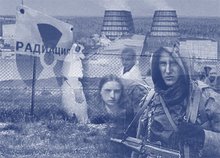The first decade of the 21st century has seen the development of new
international approaches to strengthening nuclear security and combating the
threat of nuclear terrorism. These approaches include the adoption of new and
revised international legal instruments that mandate countries to take certain
measures in this critical area. In parallel, a number of initiatives have
proceeded on the basis of non-binding principles and other voluntary mechanisms
to address nuclear terrorism. Notwithstanding the recent enhancement of
international legal approaches to addressing the threat to nuclear security,
substantive and procedural arrangements must be significantly strengthened.
For two days, on January 28 and 29, 2010, over 100 international
experts from more than 20 countries and international organizations discussed
ways to deal with this range of critical issues. Organized by the University of
Georgia’s Center for International Trade and Security (CITS), Dean Rusk Center
for International Law, and School of Public and International Affairs, in
partnership with the Russian Institute of World Economy and International
Relations, and sponsored by the NATO Science for Peace and Security Program,
Nuclear Threat Initiative, World Institute for Nuclear Security, University of
Salzburg, Swedish Radiation Safety Authority, American Bar Association, and
other partners, the Advanced Research Workshop—“Legal Framework for
Strengthening Nuclear Security and Combating Nuclear Terrorism”—was held in
Vienna, Austria. This volume reflects the presentations and deliberations of
workshop participants in an attempt to summarize the current understanding of,
and approaches to, the legal framework for nuclear security and
counterterrorism. It is the authors’ hope that the materials from this volume
will be useful for governments, international organizations, researchers, and
practitioners worldwide in their efforts to secure nuclear materials and
prevent nuclear terrorism.



No comments:
Post a Comment